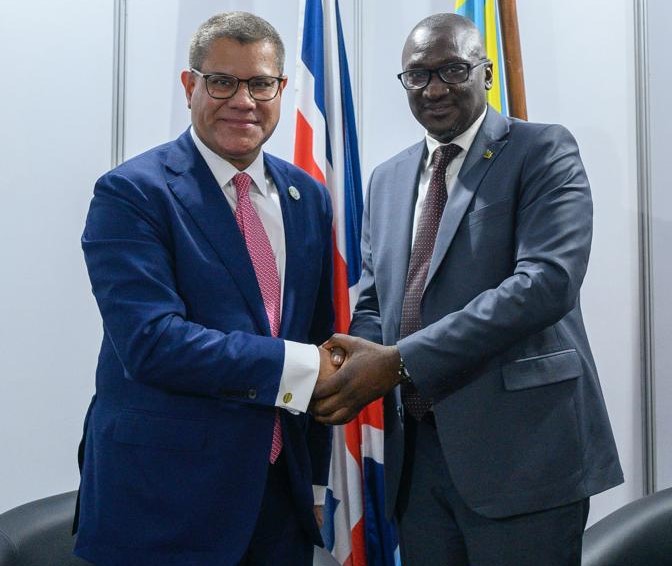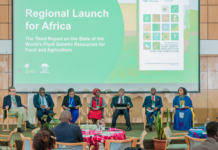BARELY a month before the COP 27 climate change summit goes underway in Sharm-el-Sheikh, Egypt a campaign-ignited by Africa for ‘key polluters of the earth’ to account for their earth’s pollution has heightened.
Arguably, despite the continent remitting negligibly to aid pollution and climate change, it has suffered the worst in recent years and campaigners are demanding that the continent’ special needs and circumstances be given the attention it needs to assist it mitigate and adapt sooner than later.
Zambia, the Chair of the African Group of Negotiators (AGN) to the Africa’s first COP 27, planned for November 6-18 has engaged top gear and envisions the continent to build and consolidate on the successes and achievements scored by the last year’s Glascow COP 26 during the coming climate indaba.
Minister of Green Economy and Environment Honorable Collins held a special meeting with COP 26 President Alok Sharma during the Pre-COP-27 in DR Congo capital, Kinshasa.
He noted that since 2015 when the Paris Agreement was adopted, the matter has been addressed under the various COP-Presidency consultations.
The lack of clarity has since forced the African Group to once again request for the item to be put on the agenda at COP-27. The African interest group believes the continent has done its part and seeks a consolidated voice to actualize the cry for climate financing to mitigate through adaptation.
Arguably, the outgoing COP-26 President, Mr. Shalok has joined the lobby and had Wednesday convened the next Bureau Meeting at the commencement of COP-27 to set the tone of how the COP-27 will proceed, which the AGN hope to ride on and achieve its ambition, according to Minister Nzovu.
The AGN remains optimistic that through the item, a decision to recognise Africa’s special needs and circumstances would be adopted to facilitate tangible and practical programmes for implementation in Africa.
The scientific studies including the recent reports by the Intergovernmental Panel on Climate Change (IPCC) and Africa’s own assessments confirmed that the continent will be the worst impacted region more than any other.
“In fact, the continent is already experiencing the adverse impacts of climate change which is limiting our economic and development trajectory,” he said. “The IPCC also estimates that adaptation costs in Africa will reach up to $86.5 billion annually by 2030.”
African governments are already incurring enormous costs of climate impacts, paying some ten per cent of their GDP to fund adaptation actions and that ‘all these are in the context of the continent contributing less than four per cent of the world’s total emissions yet impacted the most and need assistance.
“On loss and damage, we think that we need to agree on operational modalities for the Santiago Network for Loss and Damage in order to provide necessary technical assistance to developing countries,” he said.
And climate change hard hit African countries are disappointed at the delays by global rich and leading polluters for failing to honour the funding promises for poorer countries to cope with the climate crisis ahead of COP-27 summit, according to a statement.
Some recipients from Africa- have raised eyebrows over the delays to disburse what was pledged several years ago to mitigate the emissions from green houses. They have urged rich countries to do more to combat the climate crisis.
They describe the rich countries’ failure to meet a funding promise from 2009 “shameful”.
During the conference in Giza, Egypt, Wednesday ahead of next month’s UN climate summit, Wael Aboulmagd, Egypt’s special representative for COP-27, attacked wealthier nations for not honoring an agreement to provide $100bn (£87.5bn) a year to developing countries by 2020.
The sum was pledged during the COP 15 in Copenhagen, Denmarks to help cut greenhouse gas emissions and cope with the impact of the climate crisis on those most affected, and for which the developed world had an “added responsibility”, said Aboulmagd.
“It was predominantly carbon emissions from Europe and the US that were responsible for where we are right now”, why is Africa bearing the brunt of the climate crisis? – interest groups are asking.
According to Aboulmagd, the $100bn target – itself “is a drop in the ocean” of what was needed – had never been met since it was agreed 13 years ago. The failure of rich countries to meet their climate commitments is likely to dominate Cop27, which will be held in the Egyptian resort of Sharm el-Sheikh.
The UN deputy secretary general, Amina Mohammed, supports the drive for the actualisation of the funding noting that investment in climate adaptation in developing countries “must be a priority” for COP-27.
Mohammed said that $40bn was “only a fraction of the $300bn that will be needed annually by developing countries for adaptation by 2030”. He is cited as speaking of the decision made at COP-26 which called for the doubling the climate funding for adaptation to $40bn by 2025,
Analysts say one of the biggest criticisms of last year’s COP 26 was its failure to make significant progress on climate change financing.
In addition to continued short fallings on the 2009 financial commitments, developed countries blocked the creation of a “loss and damage fund” to help those affected by climate crisis-related disasters.








